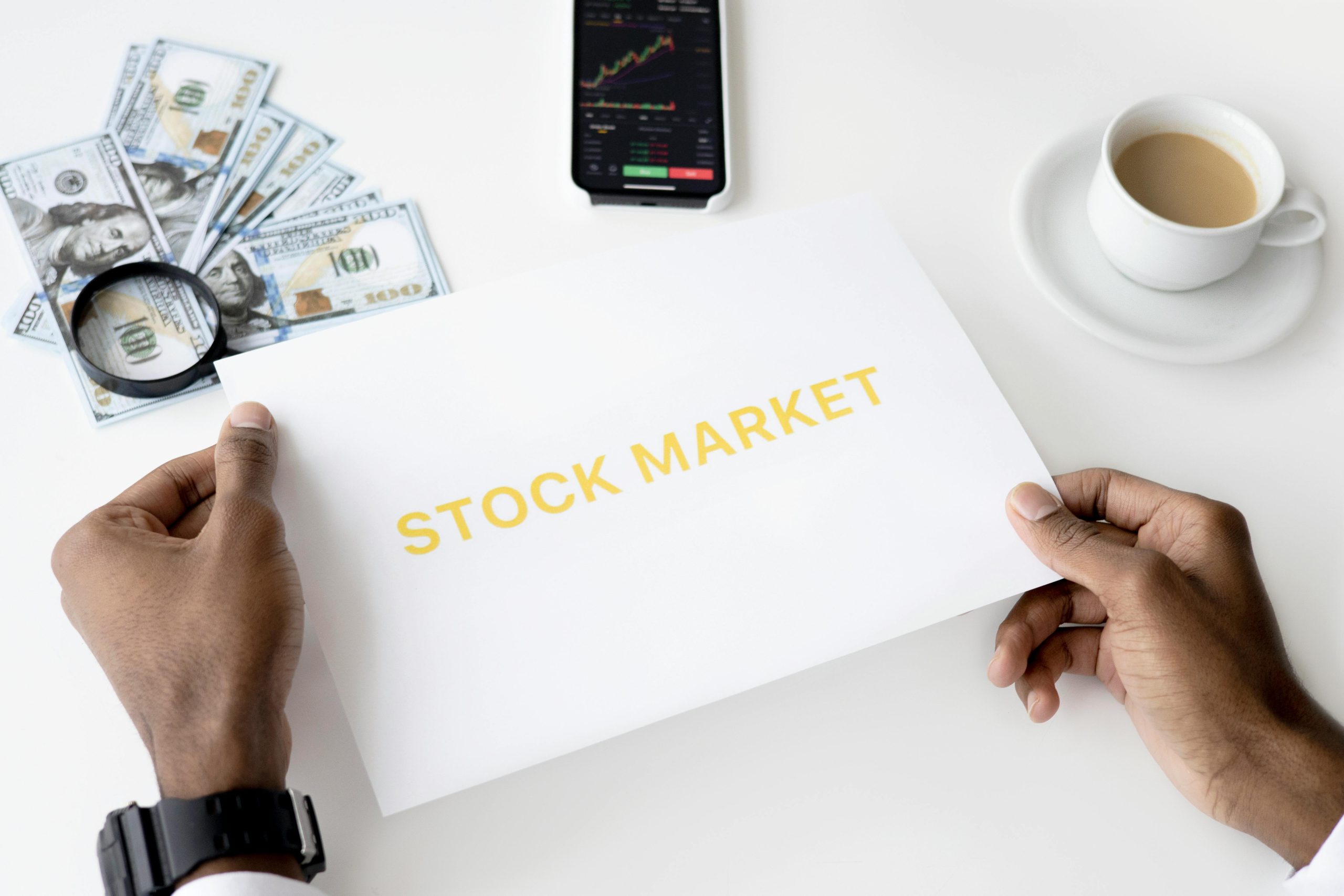Unveiling the Impact of Global Trade on Personal Investment Strategies

Overview of Global Trade Dynamics
At its core, global trade weaves an intricate web of economic interdependence, shaping the fortunes of nations and the opportunities for investors. It’s a dynamic arena, where shifts in one region can ripple through the global economy, influencing market trends and investment landscapes.
The Interconnectedness of Global Economies
Today’s economies are more interconnected than ever. A policy change in the United States, a technological breakthrough in Europe, or a supply chain disruption in Asia can have immediate and profound effects on global markets. This interconnectedness means that investors must look beyond local shores, understanding global trends to make informed decisions.
Brief Overview of the Australian Economy and Its Place in Global Trade
Australia, with its robust economy, plays a pivotal role in the tapestry of global trade. Rich in natural resources and with a strong services sector, it is both a significant exporter and an attractive destination for foreign investment. Understanding Australia’s place in the global market is crucial for investors aiming to diversify and strengthen their portfolios.
In conclusion, the influence of global trade dynamics on personal investment cannot be overstated. By appreciating the interconnectedness of economies and recognising Australia’s strategic position, investors can navigate the complexities of the global market with confidence.
Understanding the Basics of Personal Investment in Australia

Delving into personal investment in Australia unveils a spectrum of vehicles designed to cater to diverse financial goals and risk appetites. Among these, superannuation stands as a cornerstone, offering a tax-effective way to save for retirement. Stocks and bonds present opportunities for direct market participation, allowing investors to tap into the growth and income potential of public companies and government or corporate debt. Meanwhile, real estate investment continues to attract those seeking tangible assets and rental yields. At the helm of ensuring fair play and transparency in these markets is the Australian Securities and Investments Commission (ASIC), a key regulator safeguarding investor interests and maintaining market integrity.
- Diversification is paramount in crafting a resilient investment portfolio. By spreading investments across different asset classes, investors can mitigate risks and harness the growth potential from various sectors of the economy.
- The role of ASIC cannot be overstated, providing a safety net through regulation and oversight, thus bolstering investor confidence.
- Understanding the array of investment vehicles available allows investors to tailor their strategies to meet personal financial objectives, aligning with both short-term needs and long-term aspirations.
As global trade dynamics continue to evolve, the importance of a well-rounded, diversified investment strategy becomes increasingly clear. Recognising the role of regulatory bodies like ASIC in ensuring a stable investment environment, alongside the myriad of investment options available, equips investors to navigate the complexities of the global and Australian financial landscapes with greater assurance and strategic insight.
The Effects of Global Trade Agreements on Australian Investments

Australia’s engagement in major global trade agreements, such as the Comprehensive and Progressive Agreement for Trans-Pacific Partnership (CPTPP), marks a significant stride towards enhancing its economic landscape. These agreements serve as catalysts, opening doors to burgeoning markets and investment opportunities, thereby reshaping the investment horizon for Australians. The ripple effects of these agreements are profound, influencing various sectors with varying degrees of impact. Agriculture, manufacturing, and services sectors, in particular, stand at the forefront of this transformation. For the agriculture sector, access to larger markets spells the promise of higher demand and better prices for Australian produce. Manufacturing benefits from reduced tariffs, making Australian goods more competitive on the global stage. The services sector, encompassing education, finance, and tourism, gains from streamlined regulations, fostering an environment ripe for expansion and investment.
- Trade agreements like the CPTPP enhance market access, driving demand for Australian goods and services.
- Investment opportunities flourish as sectors adapt to the global market, attracting both domestic and international investors.
- The direct impact on agriculture, manufacturing, and services sectors underscores the importance of strategic investment decisions, aligning with sectors poised for growth.
Understanding the nuances of these agreements and their sector-specific impacts is crucial for investors aiming to capitalise on the evolving Australian market. It’s not just about recognising opportunities but also about foreseeing challenges and adapting investment strategies accordingly. As global trade dynamics shift, the agility to navigate these changes becomes a pivotal aspect of successful investment in Australia.
Currency Fluctuations and Their Impact on Personal Investments

The value of the Australian dollar in global trade cannot be understated, serving as a barometer for international investment health. Currency fluctuations, a common occurrence in the global financial landscape, significantly influence the value of international investments. When the Australian dollar strengthens, overseas investments in foreign currencies may decrease in value when converted back to AUD, and vice versa. This dynamic interplay demands strategic foresight from investors, urging them to consider the broader implications of currency movements on their portfolios.
- Understanding the role of the Australian dollar and its fluctuations is paramount for investors aiming to safeguard their international investments.
- Strategies such as hedging against currency risk or investing in currency-diversified funds can mitigate potential losses caused by adverse currency movements.
- Staying informed about global economic indicators and geopolitical events can provide investors with insights necessary for making timely adjustments to their investment strategies.
By employing prudent risk management techniques and maintaining a diversified investment approach, investors can navigate the complexities of currency fluctuations. This not only protects their investment value against the unpredictable nature of the forex market but also positions them to capitalise on potential gains. In essence, a well-considered strategy that accounts for currency risks is indispensable in the realm of international investing.
Global Economic Trends and Their Influence on Australian Investment Strategies

Emerging markets beckon with untapped potential, offering Australian investors a golden opportunity to diversify their portfolios and tap into the growth trajectories of burgeoning economies. Yet, the allure of these markets comes with a caveat; they are often more volatile and susceptible to global economic shifts. The impact of global economic downturns cannot be understated, as they tend to send shockwaves through financial markets worldwide, including Australia. Investments, particularly those tied closely to global trade and commodity prices, may experience heightened volatility during such periods. This underscores the importance of adapting investment strategies in response to global economic trends. Investors must remain agile, recalibrating their portfolios to mitigate risks and seize emerging opportunities. This might involve increasing allocations to defensive assets during turbulent times or capitalising on the growth potential of emerging markets when conditions stabilise.
- Emerging markets present a compelling diversification option for Australian investors, albeit with higher volatility.
- Global economic downturns necessitate a strategic review of investment portfolios to manage risks effectively.
- Adapting investment strategies in line with global economic trends is crucial for capitalising on opportunities and safeguarding investments.
Global Economic Trends and Their Influence on Australian Investment Strategies
The landscape of global trade is perpetually shifting, presenting both challenges and opportunities for Australian investors. Emerging markets, with their rapid growth and expanding middle classes, offer a fertile ground for diversification and potential high returns. However, these markets also carry a higher risk, particularly in times of global economic downturns, which can disproportionately affect these regions. Such downturns necessitate a strategic reassessment, as the interconnectedness of global economies means that ripples in one market can lead to waves in another. Adapting investment strategies in response to these global economic trends is not just prudent; it’s essential for safeguarding and potentially growing investments in uncertain times.
- Emerging markets present a compelling opportunity for diversification and growth, albeit with higher risks.
- Global economic downturns can impact investments, underscoring the importance of a resilient and adaptable investment strategy.
- Adapting investment strategies in response to global trends is crucial for navigating the complexities of the international financial landscape.
Global Economic Trends and Their Influence on Australian Investment Strategies
The landscape of global trade is perpetually shifting, presenting both challenges and opportunities for Australian investors. Emerging markets, with their rapid growth and expanding middle classes, offer a fertile ground for diversification and potential high returns. However, these markets also carry a higher risk, particularly in times of global economic downturns, which can disproportionately affect these regions. Such downturns necessitate a strategic reassessment, as the interconnectedness of global economies means that ripples in one market can lead to waves in another. Adapting investment strategies in response to these global economic trends is not just prudent; it’s essential for safeguarding and potentially growing investments in uncertain times.
- Emerging markets present a compelling opportunity for diversification and growth, albeit with higher risks.
- Global economic downturns can impact investments, underscoring the importance of a resilient and adaptable investment strategy.
- Adapting investment strategies in response to global trends is crucial for navigating the complexities of the international financial landscape.
Navigating Risks and Opportunities in Global Trade for Australian Investors

Global trade, a complex web of economic interactions, presents a myriad of risks and opportunities for investors. Identifying and assessing geopolitical risks is paramount. It involves a keen understanding of international relations and their potential impact on investments. This vigilance ensures that investors can steer clear of volatile regions or sectors, safeguarding their portfolios against unforeseen downturns.
Concurrently, the global landscape is ripe with opportunities in sustainable and ethical investments. These ventures not only promise financial returns but also align with a growing global commitment to environmental stewardship and social responsibility. Investors are increasingly recognising the value of contributing to a sustainable future, making ethical investments an attractive proposition.
The importance of continuous learning cannot be overstated. Staying informed about global economic developments is crucial. It empowers investors to make informed decisions, adapt strategies in real-time, and capitalise on emerging trends. This proactive approach to investment, grounded in a deep understanding of global trade dynamics, positions investors to navigate the complexities of the international market with confidence and acumen.
In essence, the interplay of assessing risks, seizing sustainable opportunities, and committing to ongoing education forms the cornerstone of a robust investment strategy in the global trade arena. By embracing these principles, investors can not only safeguard their assets but also contribute to a more sustainable and equitable global economy.
In Closing
Global trade shapes investment futures, offering both risks and rewards. It underscores the necessity of strategic diversification and vigilant risk management. By balancing the pursuit of growth with the mitigation of financial uncertainties, investors can navigate the complexities of international markets. Embracing a dynamic approach to investment, informed by global economic trends and regulatory frameworks, prepares investors for a future of financial resilience and prosperity. Let this be a call to action for investors to adapt, learn, and thrive in the ever-evolving landscape of international investing.

Ayesha Brueckner is your typical 24 year. Carrying a mountain of student debt. Looking at house prices and wondering if buying one will ever be possible. Looking for income solutions outside of a weekly wage. Join her on her investment and wealth research journey.

